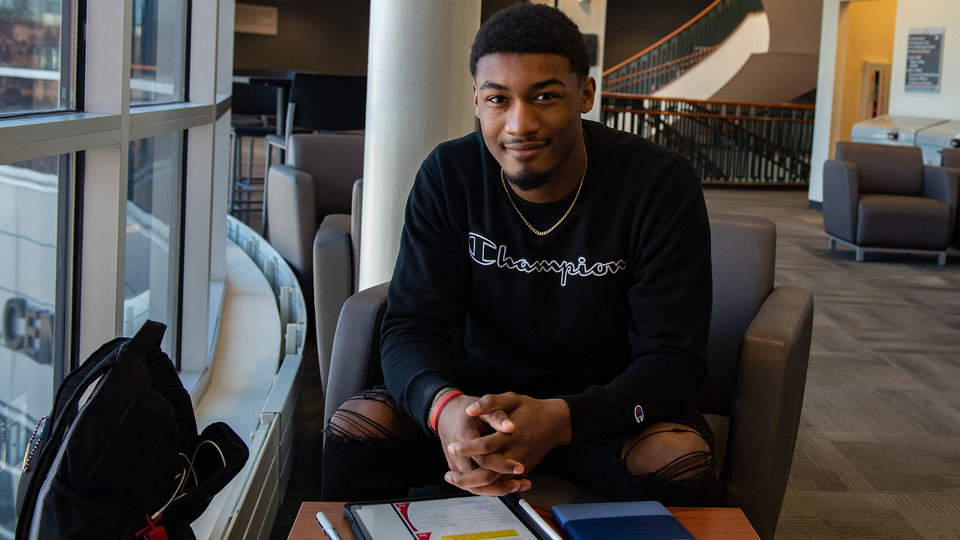
Critical thinking is simply a way of life for computer science major Michael Sanders.
In math and science classes, Sanders was never satisfied with learning styles that focused on memorization without understanding the “why” behind the processes.
He is finding that why with the support of the STEM CONNECT Scholarship program at the University of Nebraska–Lincoln, which gives students who choose a STEM major the chance to work closely with faculty and peer mentors while joining a community of students who share an interest in STEM subjects.
As a freshman, Sanders is a member of the university’s first cohort of 10 STEM CONNECT Scholars, a grant funded by the National Science Foundation. Twenty more scholars will join the program in the fall semester.
Sanders recalled how Omaha Central football coach and high school math teacher Bryan Calder not only helped Sanders merge his critical thinking in sports and school, but also showed his students that it was OK to make mistakes. If Calder made a mistake in a lesson, he would take the time to correct himself and walk the class through the steps they could take to avoid similar errors.
“That’s exactly what an athlete does,” Sanders said. “In between snaps, you have a millisecond to react to something to make a play happen.”
The way Sanders sees it, quick decision-making bleeds into all aspects of life. The world of science, technology, engineering and math isn’t just something Sanders needs to understand for the sake of his education. It’s a mindset, a “way of life,” that can translate into any career, he said.
If Sanders had his way, that career would play out on the basketball court. As a professional basketball player, Sanders said he would use the problem-solving mindset that he's developing in math and computer science classes to run the offense, communicate the defense and solve problems on the court.
But if life as a professional athlete falls through, Sanders has another dream job in mind. He’d like to own a technology company that will help him contribute to the industry in Nebraska while also allowing him to pursue his passion for computer science.
Sanders focuses on “being open, not being in a box,” he said. He doesn’t like to be restricted, so he learns as much as he can about a variety of different subjects. In high school, he used to attend all sorts of events — theater shows, sporting events, multicultural celebrations, anything he thought might teach him something new.
But he’s not doing it just for himself. He doesn’t see many African-Americans in the computer science field, and he’d like to change that. He’d also like to give young people, like his nephew, an example of success.
“I’m the type of person who says, ‘I’m going to grind it out,’” Sanders said. “You can get good at anything you want if you take time and put the effort in.”
Read the full story in Nebraska Today.